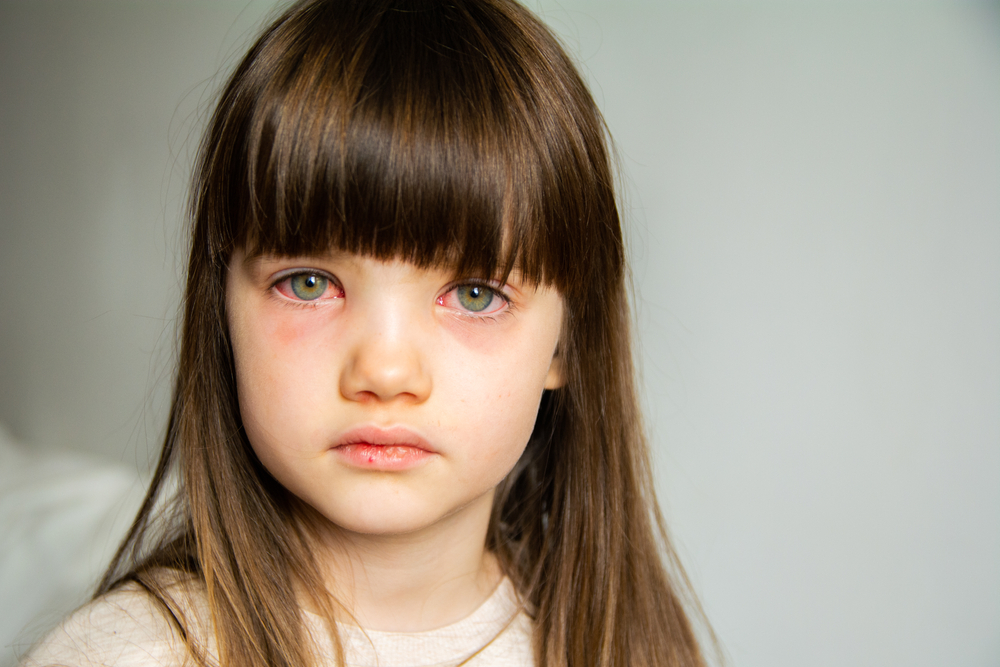
You may have heard it referred to as "pink eye," but the clinical term for this common eye condition is conjunctivitis. Conjunctivitis is not just a single disease; it's a group of diseases that cause swelling, itching, burning, and redness in the conjunctiva, the clear lining of the white part of your eye and the inside of your eyelids. It can strike anyone, from the youngest children to the oldest adults, causing discomfort and sometimes worry due to its noticeable symptoms.
Causes of Conjunctivitis
The most common causes include viral and bacterial infections, which are highly contagious and can spread rapidly in schools, offices, and homes. If you've recently caught a cold or been in close contact with someone suffering from conjunctivitis, chances are you could be at risk.
Allergies are another significant cause of conjunctivitis. Seasonal allergens like pollen, as well as year-round irritants like dust mites or pet dander, can trigger allergic conjunctivitis. Unlike its infectious counterpart, this type of conjunctivitis isn't contagious, but it can be just as uncomfortable, causing itchy, watery eyes and a host of other allergic symptoms.
Lastly, environmental factors such as smoke, chemicals, or pollutants can also lead to a form of conjunctivitis. This type often results from your eyes reacting to these irritants, leading to redness and swelling. Whether it's from a smoky environment, swimming in a chlorinated pool, or exposure to certain chemicals, the irritation can quickly evolve into conjunctivitis.
Recognizing the Symptoms of Conjunctivitis
When conjunctivitis strikes, its symptoms are hard to ignore. One of the most apparent signs is the reddening of the white part of your eye, which can range from a light pink to a deep, angry red. This redness occurs due to the inflammation of the blood vessels in the conjunctiva.
The symptoms don't stop at redness, though. You might also notice that your eyes are more watery than usual, or you could experience a thick, sticky discharge that may be clear, white, yellow, or greenish in color. This discharge can sometimes cause your eyelids to stick together when you wake up in the morning, which is a telltale sign that you might be dealing with conjunctivitis.
Other symptoms include a gritty feeling in your eyes, as if you have sand trapped inside them, along with itching, burning, and increased sensitivity to light. If you wear contact lenses, you might find them suddenly uncomfortable to wear. Recognizing these symptoms early can be crucial in seeking timely treatment and preventing the spread of conjunctivitis if it's infectious.
Optometric Treatments for Conjunctivitis
When you visit an optometrist with symptoms of conjunctivitis, you'll undergo an examination to determine the cause and appropriate treatment. If it's bacterial conjunctivitis, your optometrist may prescribe antibiotic eye drops or ointments to fight the infection. It's important to complete the entire course of antibiotics, even if your symptoms improve before finishing the medication.
For viral conjunctivitis, which is often associated with the common cold, there isn't a direct treatment. Instead, the focus is on relieving your symptoms while your body fights off the virus. This can include using artificial tears to soothe your eyes, applying cold or warm compresses to reduce swelling and discomfort, and maintaining good hygiene to prevent further spread.
If allergies are behind your pink eye, your optometrist might recommend antihistamine or anti-inflammatory eye drops to control the allergic reaction. In some cases, they might also suggest oral antihistamines. It's also helpful to identify and avoid the allergens causing your symptoms whenever possible.
Prevention Strategies for Conjunctivitis
Preventing conjunctivitis is largely about practicing good hygiene and being mindful of potential irritants. Always wash your hands thoroughly and frequently, especially before touching your eyes or face. This simple habit can greatly reduce the risk of spreading infectious conjunctivitis.
If you're prone to allergic conjunctivitis, try to minimize your exposure to known allergens. During allergy season, keep windows closed and consider using air filters to keep irritants out. Wearing sunglasses can also help protect your eyes from pollen and other airborne allergens when you're outdoors.
For contact lens wearers, proper lens care is crucial. Always clean and store your lenses according to your optometrist's instructions, and never wear them longer than recommended. Avoid wearing contact lenses while swimming or in hot tubs, and consider switching to daily disposables to lessen the risk of contamination.
Conclusion
Conjunctivitis might be a common and sometimes unsettling condition, but understanding its causes, symptoms, and treatments can help you manage it effectively. Whether it's bacterial, viral, or allergic, there are strategies you can employ to treat and prevent this eye condition. Remember to maintain good hygiene, be aware of potential allergens, and seek professional optometric advice when needed.
If you have any concerns about conjunctivitis, reach out to our optometrist for a proper diagnosis and treatment plan. Visit SeePort Optometry at our office in North Port, Florida. Please call or text (941) 876-4400 to schedule an appointment today.









